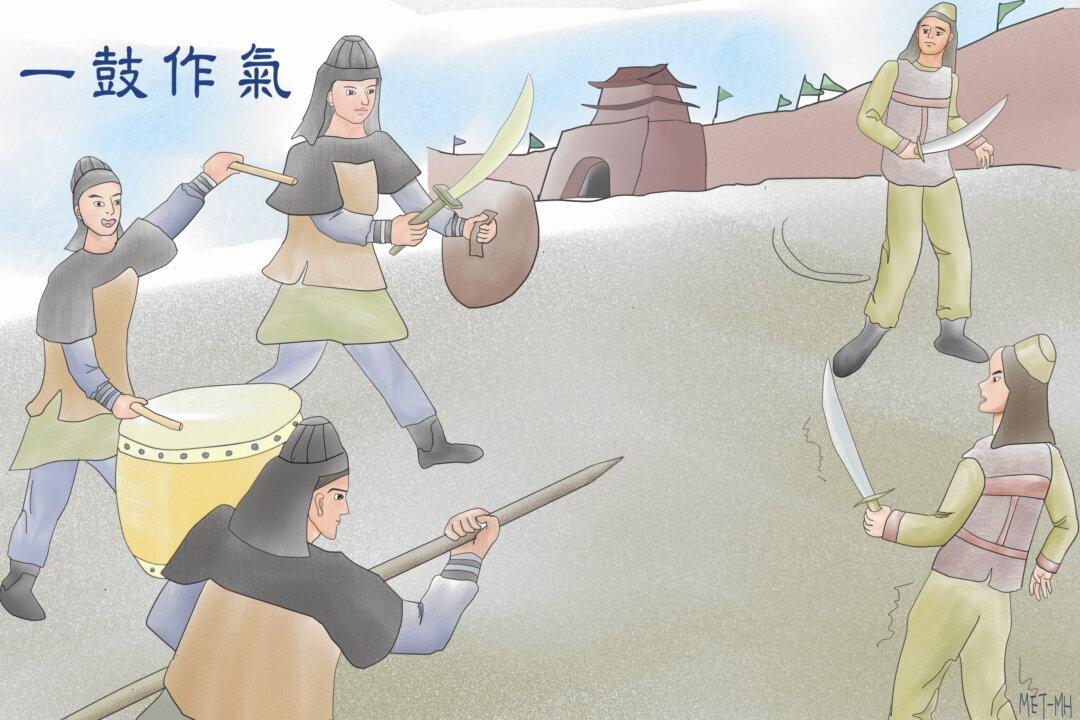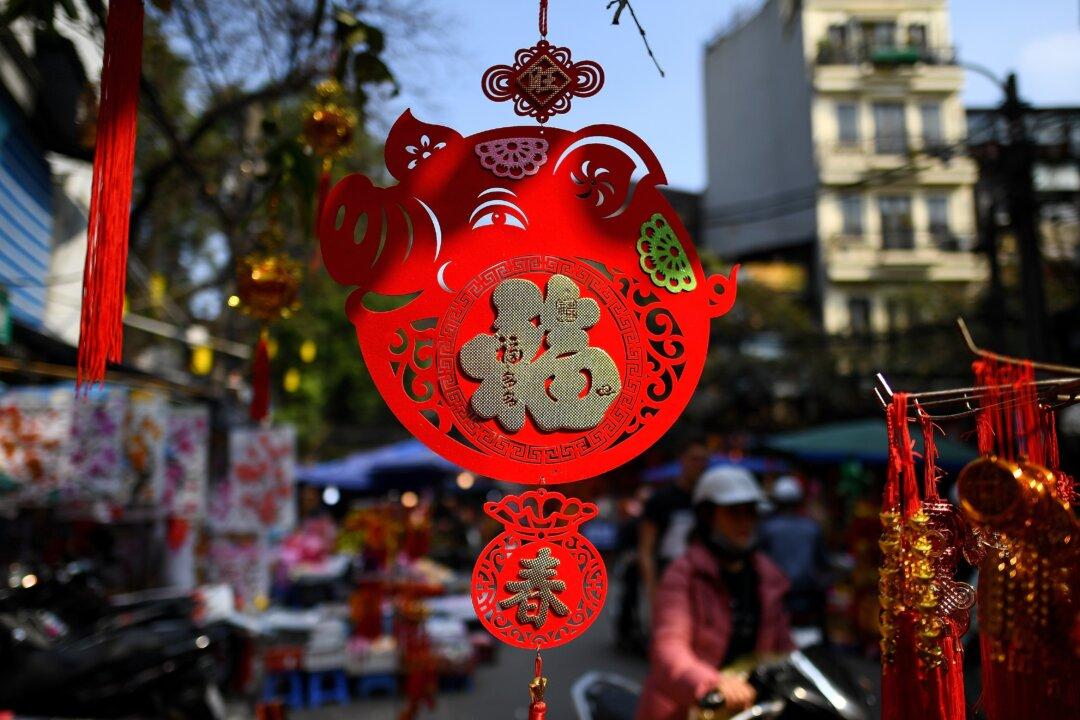The Chinese idiom 一鼓作氣(yì gǔ zuò qì) means to press on to the finish without letup. It came from a story about the strategy of a military advisor in the state of Lu during the Spring and Autumn Period (770–476 B.C.).
At that time, the state of Qi was one of the strongest kingdoms. When the Qi state launched an attack against the state of Lu, the Lu king became very worried. He immediately called his military advisor Cao Gui to help him lead the Lu army to fight the Qi.
The forces from the two states confronted each other on the battlefield.
The Qi army sounded its drums and the king of Lu prepared to start the offensive. Just when he was about to order his troops to advance, Cao stopped him, saying: “Not yet, the time has not come.”
Cao took the king to a higher place to observe the battle formation of the Qi army. They saw the Qi charging ahead accompanied by vigorous drum beats. After a while, the war drums of the Qi armysounded another charge.
The king of Lu wanted to order the offensive again, but Cao stopped him and told him they must wait for an opportune moment. The Lu army remained steadfast.
The Qi army’s morale deflated after the two vain attempts to engage the Lu. When they regrouped for a third charge, the morale of the Qi had greatly declined.
The Qi soldiers were so tired and disappointed after the first two charges without being met in battle that they sat down to rest.
“Now, our time has come!” Cao said to the king, who then gave the order for the Lu to beat their war drums for the first time for an attack. The Lu soldiers engaged the enemy valiantly, and the Lu army eventually won.
Later on, the king of Lu asked Cao Gui why he had restrained the Lu army from engaging the enemy until the third beating of their war drums.
Cao answered: “The morale of the soldiers is important to win a war; it is usually very high with the first charge and weakens at the second charge. When the war drums beat for the third charge, the Qi soldiers’ morale had declined.”
“We started our first charge with war drums after three charges by the Qi army. That was the moment when the Qi soldiers’ morale was low and ours was high. So, we could press on to the finish without letup and win the war.”
This story was recorded in the book “Zuo Zhuan (左傳)” by Zuo Qiuming before 389 B.C. The idiom 一鼓作氣(yì gǔ zuò qì) was developed from the story. The literal translation of the idiom is “at the first drums, morale (fighting spirit) is the highest.” It is translated as to press on to the finish without letup or to get something done in one vigorous effort.




